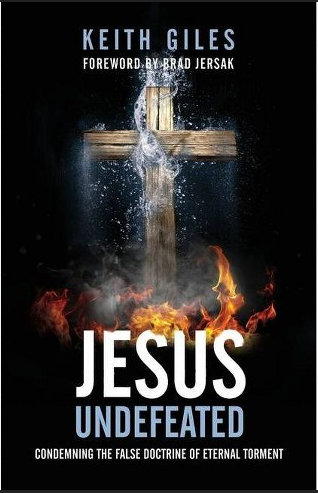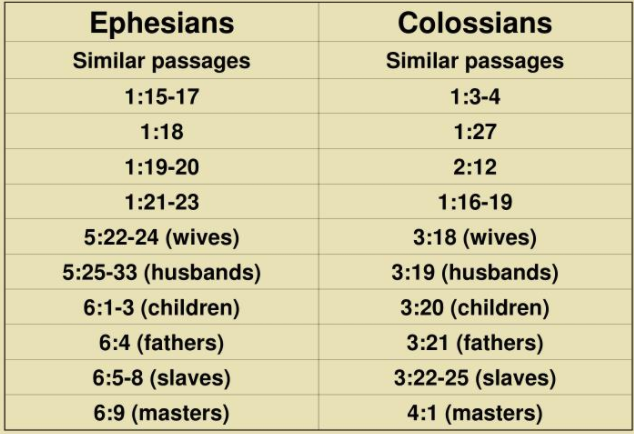
Recently I have been in discussions with some friends that read my blog fairly consistently and they have, in an effort to understand my beliefs, have baited me by calling me a universalist.
That is fair, since I may not have defined every specific teaching as they may want, most likely due to the fact I honestly haven’t come to a settled persuasion on some of the teaching they may ask about me.
Initially, as I have stated in previous posts, I was surprised with the number of passages that support an evangelical universal reconciliation teaching. Please do not think that this teaching is the same as the “all roads lead to heaven” teaching, which I consider to be blasphemous. There is only one way to the Father, and that is through the Lord Jesus Christ.
With this, I would like to begin delving into some of the New Testament passages Mr. Giles brought to my attention, for your consideration, edification and civil discussion.
Regarding the book itself, I read it in one sitting, not simply because it was under 200 pages, but that it was challenging my though process and I found it enjoyable reading. If this topic interests you, please pick up a copy. It is well worth your time.
Our fifth blog post will begin with passage 5, Colossians 1:14, 19-20. Mr Giles provides a very good introduction to the passage and supplies points that I had never considered before. I do hope you will take a few minutes to consider this passage with me.
Passage 5
Colossians 1:14, 19-20
in whom we have redemption, the forgiveness of sins.
For in him all the fullness of God was pleased to dwell,
and through him to reconcile to himself all things, whether on earth or in heaven, making peace by the blood of his cross.

As my readers may notice, this passage is the Colossian equivalent to the previous post Book Look – Jesus Undefeated – Passage 4 on this topic.
With this difference, Paul makes a slightly astounding comparison. But before we get to the comparison, consider the following two key verses in this book that defend the complete and utter unapologetic claim that Jesus is God Almighty.

Colossians 1:19 ESV – For in him all the fullness of God was pleased to dwell,
Colossians 2:9 ESV – For in him the whole fullness of deity dwells bodily,
Notice that both of these verses state that the fullness of God, all the fullness of God, not a portion of the fullness of God, not a certain percentage of the fullness of God, but all the fullness of God dwells in Him. He is the Messiah – God with us! The term “all” in these verses are the basis of this claim, in that Paul did not state –
For in Him deity dwells
Dang, we can say that about believers and we are simply beggars at the throne of God, granted tremendous privilege’s based on the righteousness of our Savior! He is the One in whom ALL the fullness of Deity dwells
OK Carl – as a believer, I understand and believe that Jesus is God. What is the point?
Let’s go back to the context of the original verses
Colossians 1:19-20
For in him all the fullness of God was pleased to dwell, and through him to reconcile to himself all things, whether on earth or in heaven, making peace by the blood of his cross.
Paul introduces the same phraseology as in Ephesians, but this time the “all things” is compared with the deity of the Lord Jesus.
This causes me to stop and consider how to understand Paul’s message. In Ephesians, the “all things” of verse 10 was related to the mystery of God’s will, set forth in Christ. The Ephesian passage speaks to uniting “all things” in Him. This passage speaks of reconciling all things to Himself.

Reconciling, dear reader!
The Greek term used in this passage is ἀποκαταλλάσσω apokatallássō, and is used to define three different actions by God toward sinners.
- to reconcile completely,
- to reconcile back again,
- bring back a former state of harmony
You see, an argument in the Ephesian passage could be that the unity referred to is a forced unity, a uniting of all things based on the authority of the Messiah. Jesus is the Lord and has all authority and this may be Paul’s intent in Ephesians.
The argument of authority only doesn’t hold water for me in this passage, unless my readers can provide a cogent reason for reconsidering. Paul is speaking of reconciliation, that is a bringing back, a relationship being returned to between God and “all things”. Reconciliation is an action that screams of relationship, of two “people” looking at each other, relating to one another, at peace with one another!
Returning to consider the “all things” of verse 20, we read in Romans 8:22 that all of creation groans until the redemption of our bodies, yet when I read that passage I default to excluding most of humanity in the “all of creation” description.
Should the “all things” of Colossians 1:20 condition our thinking when we read a passage such as Romans 8:22?
Yet the “all things” of Colossians 1:20 must refer to a portion of humanity, since we know that some have not been reconciled. Therefore the “all things” must be understood to refer to “some things”. And if that is true, should we understand verse 19 to teach us that some of the fullness of the Godhead dwells in the Messiah?
If not, why not? Why would Paul change the intent of the term “all” from one verse to the next. It seems a difficult verse to argue against from the Universalist Reconciliation stance.
Your thoughts?
Thanks again for coming to visit. I hope you found something of interest in this post and would appreciate a comment, to begin a discussion.























